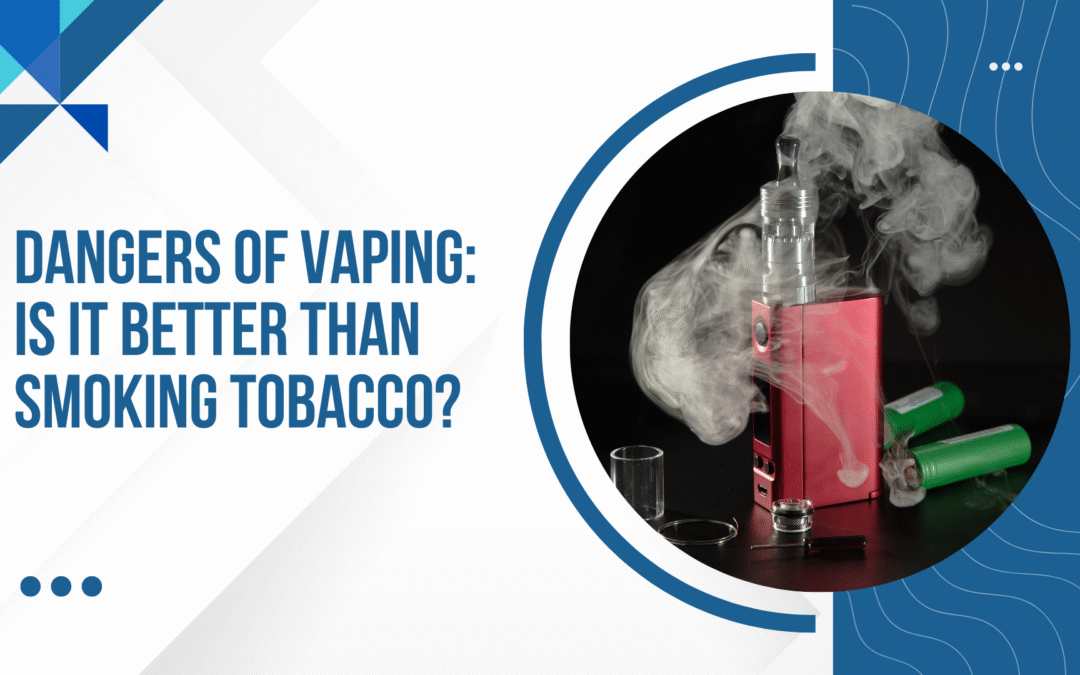“Doc, is vaping safer than smoking cigarettes?”
Firstly, let’s get to know what Is Vaping?
Vaping involves inhaling an aerosol (commonly called vapor) produced by an electronic cigarette (e-cigarette) or similar device. These vapors often contain nicotine, flavourings, and other chemicals — many of which can be harmful when inhaled.
It’s marketed sometimes as a “safer option” to traditional smoking and so mostly the Gen Z’s have fallen into this trap, thus making vape immensely popular amongst themselves. However, recent studies reveal that vaping is Surely has risks involved, especially for your mouth and overall health.
One thing we clearly need to understand id that be it smoking or vaping, it’s the nicotine and other chemicals, that’s causing the harm. Let’s see some of the most common side effects in the oral environment.
The Dangers of Vaping for Your Oral Health
So, Coming back to the same question, Is Vaping Better Than Smoking?
The honest answer: Neither is good for you.
While vaping may expose users to fewer toxic substances than smoking traditional cigarettes, it still poses significant health risks, particularly for the mouth.
Here’s a quick comparison:
| Aspect | Smoking Tobacco | Vaping |
| Nicotine addiction | High | High |
| Cancer-causing agents | Many | Fewer, but still present |
| Impact on oral health | Severe (gum disease, oral cancer, tooth loss) | Significant (gum disease, enamel damage, possible cancer risk) |
| Healing after dental work | Poor | Poor |
| Breath odor | Strong and unpleasant | Masked by flavors |
While some may view vaping as the “lesser evil,” it’s important to recognize that “less harmful” does not mean “safe.”
What Should You Do?
If you currently smoke or vape, quitting is the best thing you can do for your oral and overall health. At Exldentist Clinic, we support our patients with guidance on smoking cessation and protecting their dental health.
Remember:
- Maintain regular dental checkups.
- Practice excellent oral hygiene.
- Seek professional help if you want to quit smoking or vaping.
Final Thoughts
At Exldentist Clinic in DLF 4, Gurgaon, we believe prevention is always better than cure. Vaping may have started as a “safer” alternative, but it carries serious health risks, especially for your mouth. Protect your smile — choose health over habits.
Frequently Asked Questions
Is vaping bad for your teeth and gums?
Yes, vaping can cause dry mouth, gum disease, enamel damage, and slow healing after dental procedures.
Does vaping cause oral cancer?
Research suggests chemicals in vape aerosols may increase the risk of oral cancer, though studies are ongoing.
Is vaping less harmful than smoking for oral health?
While it may have fewer toxins, vaping still significantly harms oral tissues and should not be considered safe.
Can vaping affect healing after dental treatments?
Yes, nicotine in vapes restricts blood flow and slows down healing after surgeries, implants, and extractions.

